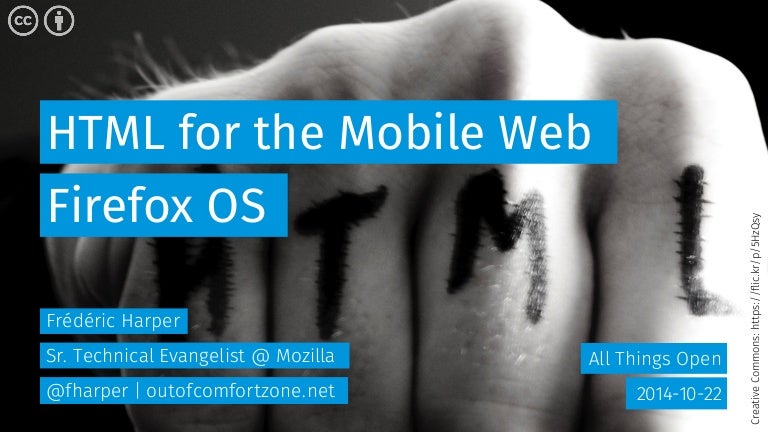Mozilla Html
Portions of this content are ©1998–2019 by individual mozilla.org contributors. Content available under a Creative Commons license. 'Raspberry Pi' is a trademark. Html Validator by Marc Gueury HTML Validator is a Mozilla extension that adds HTML validation inside Firefox, Mozilla. The number of errors of a HTML page is seen on the form of an icon For Firefox 56, use 0.974 (see all versions below). Dispatches from the Internet frontier. In early 2020, I outlined our efforts to expand Mozilla’s boards. Over the past year, we’ve added three new external Mozilla board members: Navrina Singh. The browser works on VAX, Alpha, and Itanium platforms. 44 Another long-lived version, Mosaic-CK, developed by Cameron Kaiser, was last released (version 2.7ck9) on July 11, 2010; a maintenance release with minor compatibility fixes (version 2.7ck10) was released on January 9, 2015, followed by another one (2.7ck11) in October 2015. Import and Backup and choose Export Bookmarks to HTML from the drop-down menu. In the Export Bookmarks File window that opens, choose a location to save the file, which is named bookmarks.html by default. The desktop is usually a good spot, but any place that is easy to remember will work. Click the Save button.
- Mozilla Html Grid
- Mozilla Html Developer
- Mozilla Html Head
- Does Firefox Support Html5
- Mozilla Html Tutorial
You are currently viewing a snapshot of www.mozilla.org taken on April 21, 2008. Most of this content ishighly out of date (some pages haven't been updated since the project began in 1998) and exists for historical purposes only. Ifthere are any pages on this archive site that you think should be added back to www.mozilla.org, please file a bug.
- Coding
- Testing
- Tools
- Editor documentation
- Commands (for embedding usage)
What is the editor?
The Mozilla editor provides HTML and plain text editingfunctionality in Gecko-basedapplications. Internally, the editor code manipulates page contentprimarily using DOM calls, so itis a true DOM-savvy editor. It also supportsIME (international text input), and is mostly accessible fromJavaScript.
The editor is currently used in three different ways in the Mozillacodebase, though each application shares the same underlying code:
- Composer -- a fully-fledged HTML editor, for writing webpages.
- Embeddable HTML editing widet -- a rich text editing tool,used in mail compose, instant messaging and other areas.
- Text widget -- the editor is used for text input and textareas, both in XUL (e.g. the URL bar), and in HTML formcontrols.
See the developer docs belowfor more information about how the editor works.
The editor code lives in mozilla/editor/,though we also rely on (and in some cases support) code in other areas,particularly DOM range and selection (DOMinterfaces, rangeand selectionimplementation). We also maintain the output system: code to convert aDOM document to some form of text (to plaintext, or HTML).
Editor code is currently packaged into 3 XPCOM component DLLs:
| Library | DLL name* | Purpose | ||
|---|---|---|---|---|
| Win32 | Unix | Mac | ||
| Editor | editor.dll | libeditor.so | EditorCore.shlb | Core editing functionality, interfaces with JS |
| Transaction Manager | txmgr.dll | libtxmgr.so | EditorTxmgr.shlb | Generic transaction handling (for undo/redo support) |
| Text Services | txtsvc.dll | libtxtsvc.so | TextServices.shlb | Provides simple interface to get text from a DOM document(for Find and Spellcheck) |
*note that names in debug builds may be different.
Editor user-interface files, consisting of XUL, JS, CSS and GIFfiles for the editor window and dialogs live in mozilla/editor/ui/,and, in a build, get installed to chrome/packages/core/editor/content/and chrome/skins/<skin name>/editor/skin/.
Editor documentation
Please feel free to comment on these documents in the editornewsgroup/mailing list; see the communitypage for details on how to subscribe.
Inevitably, as development progresses, some of thesedocuments will become out of date. Before embarking on any non-trivialtask based on information presented here, contact the editor group for thelatest details.
Brian King has also written some documents about extendingthe editor, at the O'ReillyDevCenter.
Behavior specs
These spec documents describe the way we'd like the editor to behavein response to various user-level actions, given the current editingcontext and possible preference or other settings. They deal withissues like 'What happens if my selection point is in a paragraph, andI type 'return'?'
- HTML Typing Rules. The rules specifyingwhat happens when the user hits space, return, etc. in variousdocument contexts.
- List Editing Rules. The rulesspecifying what happens when the user uses the list toolbarbuttons or List Properties dialog
- Selection. Selection is partof layout, but the editor team is implementing it
- Adding basic CSS 1 Support to theEditor describes a proposal for the addition of CSS 1 support to theEditor.
UI specs
These specs deal with parts of the UI such as the main window,dialogs, menus, context menus etc.
- Main composer window specs. Not available yet.
- Mail compose specs. Not available yet.
- Menu specs. Not available yet.
- Context menu specs. Not available yet.
- Dialog Specs.Specs for the various composer dialogs (somewhat outdated).
- Table Editing Specs. Specsfor table editing (somewhat outdated).
Implementation specs
Some specs concerning lower-level details of specific areas in theeditor.

- Key Event Specification Not justfor the editor, but for the whole Mozilla app.
- Transaction/Undo Manager A general-purposeset of classes, usable by clients outside the editor too
- Selection spec Selection is partof layout, but the editor team is implementing it
Test plans
Mozilla Html Grid
Test plans and testcase used by QA (Quality Assurance) to determinewhether features work (i.e. to look for bugs).
- Composer/Browser Front-end Test Plans.
Developer information
The following documents are intended mainly for a developeraudience, and get down to the nitty-gritty about how the editor works.
- How the editor works --editor instantiation and event handling
- The Transaction Manager,which allows for undo/redo.
- The Text Services, a way forclients to access the text of a DOM document easily, withouthaving to know about the details of the document format.
Some more generic 'how-to' documents
- Notes on the DOM serializers (howhtml and plaintext output is created)
- Editor API Logging -- Allows users to record edits made to a document and play them back.
- Composer runtime table-- list of required libraries and files, with their sizes (somewhatout of date)
Historical information
As with the rest of the layout codebase, the current editor is basedon entirely new source, on top of the Gecko layout engine. There are noparts of the old, 4.x-derived composer codebase that remain.
Information about the oldComposer is available; be warned that this code is no longer beingdeveloped or maintained, but is still in the tree for those who mightwant to reference it.
How can I help?
So you want to jump in and hack some code, tweak the UI, or writedocs or test plans? Excellent!
The first thing to do is to decide how you'd like to contribute.We'd be very glad to have assistance in any of the following areas, solet me list them, and say what kind of level of expertise would berequired for each one:

Major new features (e.g. publishing)
This would require significant work in C++ (probably creating a new XPCOMcomponent), as well as UI work in XUL andJavaScript.Embedding the editor in another app
This is more a matter of XUL and JS coding, unless your hosting application is written entirely in C++. See the embedding docs. You'll alsohave to have a pretty good understanding of how the editor gets instantiated and handles events (described here).Improving the HTML typing rules; better HTML generation
The current HTML typing rules were written with HTML mail generationvery much in mind; they are not optimal for web page writing,and we are aware of this. They are implemented in C++. You canfind out how to write new rule sets here. Note that a pretty goodknowledge of the DOM would berequired.Helping fix memory leaks, performance problems, and bugs
We can always use help with memory usage, performance, and simplymore eyes on the code. This work would be almost entirely inC++, and you'd probably want to use one of the commerciallyavailable tools for your platform. Information on how to findand fix memory leaks is here.Other bugs, like crashes etc, require standard debuggingtechniques, though tools like Purifycan sometimes help.Tweaking the UI, adding minor new features
This you can do with a working knowledge of the XP Front-end (XPFE), which is a wayof describing UI appearance and behavior using an XML dialect,XUL, and JavaScript. You can mess with the UI by playing with the XUL, CSS and JS files in a downloaded binary. Look inchrome/packages/core/editor/content/for editor-related XUL and JS, and inchrome/skins/<skinname>/editor/skin/for CSS and images. In the sourcetree, these files are located inmozilla/editor/ui/You should also be able to add new features by writing JS,called from a menu item or context menu. To access editorfunctionality, you'll need to call into the editor via theeditor shell. You can find out what it exposes to JavaScript by looking at the IDLfile for the editorShell, nsIEditorShell.idl.
Helping with QA and testing
You can help here on a variety of levels, from just using the productand filing bugs in Bugzilla when you can, to helping with testplan and testcase development. You can find out more on the QA pages.An outline of some composer test cases is available.
Who are we?
(remove any spaces and replace AT with @ and dot with .)

- Kathy Brade (brade at comcast dot net)
- Joaquin Blas (kin at netscape dot com)
- Ryan Cassin ('Hurricane') (rcassin at supernova dot org)
- Joe Francis (jfrancis at floppymoose?)
- Daniel Glazman (daniel at glazman dot org)
- Neil Rashbrook (neil at parkwaycc dot co dot uk)
- Charles Manske (cmanske at jivamedia dot com)
- Akkana Peck (akkana at netscape dot com)
- Simon Fraser (sfraser at netscape dot com)
- Beth Epperson (beppe at netscape dot com)
If you want to know who to contact for a particular problem or codearea, this table is your bestresource.
Mozilla Html Developer

How to reach us
Mozilla Html Head
The newsgroup for discussing Mozilla editor issues is netscape.public.mozilla.editor,and members of the editor team regularly read and post to thatnewsgroup. It is gatewayed into the mailinglist mozilla-editor; subscribehere (put 'subscribe' as the subject of the message).
Does Firefox Support Html5
Last modified Tursday 15 February 2001Mozilla Html Tutorial
Maintained by the editor team: mozilla-editor@mozilla.org
